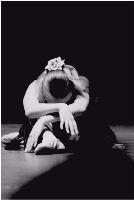 Loss and Grief - The Fallacy of Closure
Loss and Grief - The Fallacy of Closure
Loss and grief are a part of life; at some point, someone we love will die. It is an event we all fear and dread but will face nonetheless. Following the death of a loved one, we all go through a grieving process which helps us cope with the loss.
The grieving process has been encapsulated into five distinct stages: denial, anger, bargaining, depression, and acceptance.
Denial protects us initially from the shock of something so devastating that if we were to fully process it when it happens, we would not be able to function. As shock wears off, the other stages of grief--anger, bargaining, depression and acceptance--play out over time. There is no smooth transition from one stage to another. In fact, one may experience anger and depression concurrently. Jumping from one stage back to another is common. It is an emotional roller coaster that each of us rides alone. There is no right way to grieve or to process our sorrow. Our experience of loss and grief is uniquely our own.
As time passes, we get on with our lives; but do we ever fully get to a point where there is an emotional ending, a final closure to the pain that is caused by losing a loved one?
A death of a loved one changes us in ways we cannot anticipate nor would we want to. A murder of a child, a suicide, a death due to terrorism or war, genocide--how can such horrific, senseless acts ever be reconciled in our hearts, minds, and souls? Even when the death is natural and anticipated, it still shakes us to our core.
There is no such thing as closure; it is fallacy, a term that well-meaning individuals use because we human beings like to compartmentalize
feelings, especially negative ones. This may be necessary to our survival because compartmentalization allows us to function. We are able to fully experience the emotions of a situation but not let it negatively affect us or interfere with our daily activities when we are able to compartmentalize our feelings. Not surprisingly, men are better at this than women.
If there is no such thing as closure, what does happen? We assimilate the feelings into our lives. The integration of this experience alters who we are, forever changing our view of the world, how we deal with people, and react to subsequent life events.
Often times on television, we hear the expression, "We want closure for the family," in regard to a legal situation. That misses the mark completely. A more accurate, thoughtful thing for police and reporters to say would be, "We want the family to have the best legal recourse available in our justice system today."
Grieving the loss of a loved one should not be compounded by the fallacy that at some magical point one will experience a sense of closure. The reality is that a long, hard grieving process may be ahead. Hopefully, with the passage of time, assimilation of feelings of loss and integration of the grieving experience will occur, the trauma will be mitigated, and a renewed sense of purpose in life will prevail.
Mary Ruff-King is an author who loves to write on various subjects/topics. Her reflections on loss and grief are based on her personal experience of having lost several relatives in a short period of time.